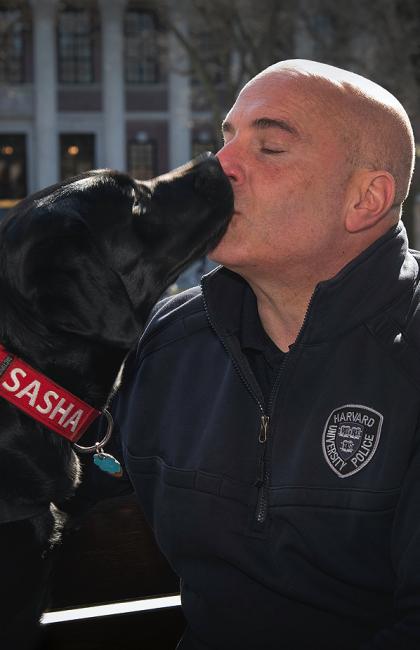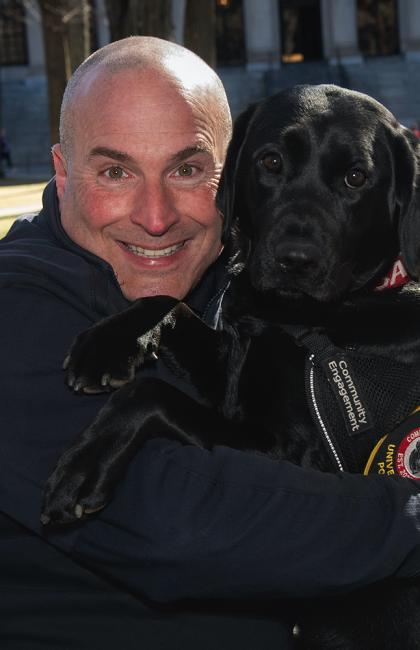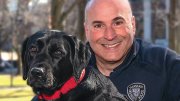When Sasha joined Harvard’s staff in August 2022, she became the first non-human to receive a University ID. The Labrador Retriever recently graduated from Puppies Behind Bars, a nonprofit that trains incarcerated people to raise service dogs for veterans and first responders. University Police Officer Steven Fumicello spent two weeks at a prison receiving training from the people who had raised Sasha during the two preceding years. “Although Sasha is employed by the Harvard University Police Department, her job is not to find guns, drugs, bombs, or explosives,” he says. As a community engagement dog, “Her role is to make people happy. We use her like a traveling therapy dog.” During regular visits to Harvard’s many facilities, she helps students with anxiety, stress, bereavement, and homesickness. She even makes house calls. Occasionally, Sasha’s work extends beyond Harvard: after the October shootings in Lewiston, Maine, she and Fumicello provided support at the Maine State Police’s Family Assistance Center. Sasha knows she’s off duty when she’s not wearing her vest—or when she’s around her favorite toys. With a beloved stick in her mouth, she’s excited and energetic; without, alert and attentive. Sometimes, though, the line between work and play isn’t so clear: “When we walk somewhere, it doesn’t take long before someone shouts out to us or comes over,” Fumicello says. Through these informal interactions, Sasha has developed a role on campus outside her original job description. “She’s a bridge to open up conversation and dialogue,” he says, helping to forge connections among students, faculty, and staff that might not otherwise be possible. She doesn’t seem to mind the expansion of her responsibilities. “When you look into Sasha’s eyes,” Fumicello says, “you can tell that she was truly meant to do this type of work.”











